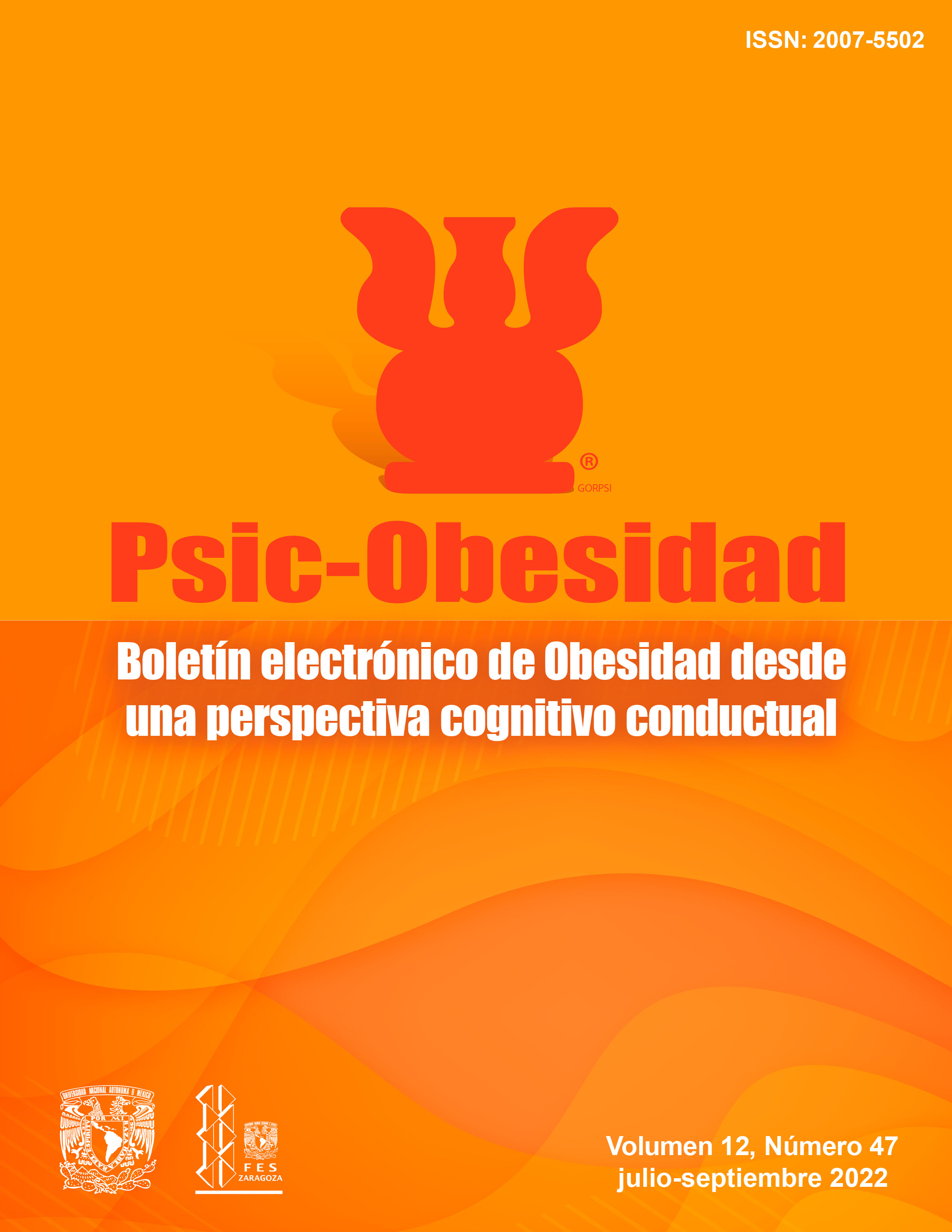Conductas de riesgo en el entorno familiar asociadas a la obesidad
Contenido principal del artículo
Resumen
Considerando que la alimentación y la nutrición son procesos que se ven influenciados por factores biológicos, ambientales y socioculturales y que es especialmente en la infancia donde el desarrollo y crecimiento debe ser óptimo, es indispensable la adquisición en esta etapa de vida, de conductas saludables que no comprometan su desarrollo. Los hábitos en torno al consumo de alimentos adecuados se han ido modificando, especialmente por factores que cambian la dinámica familiar como la menor dedicación y falta de tiempo para cocinar, la cantidad y calidad de los alimentos que se consumen y el tipo de conductas asociadas para el propio consumo de los alimentos disponibles. Por lo que en este artículo se presenta un estudio realizado a 200 sujetos de población universitaria de la FES Zaragoza y Ciudad Universitaria, con el objetivo de conocer la experiencia tolerante e intolerante de la forma de alimentación y las conductas que se presentaban en la infancia para la ingesta de alimentos, si se presentaban conductas positivas o con regaños/amenazas, los resultados arrojaron que en mujeres un 53.67% fueron criadas bajo conductas tolerantes y 46.33% de conductas intolerante a la hora de tomar sus alimentos, y en el caso de los hombres 51.07% de conductas tolerante contra un 48.93% de conductas intolerante.
Descargas
Detalles del artículo
Citas en Dimensions Service
Citas
Álvarez-Amor, L., Aguaded-Roldán, M. J. y Ezquerra-Cabrera, M. (2014). La alimentación familiar. Influencia en el desarrollo y mantenimiento de los trastornos de la conducta alimentaria. Dialnet, 19, 2051-2069. https://dialnet.unirioja.es/servlet/articulo?codigo=6250752
Bersh, S. (2006). La obesidad: aspectos psicológicos y conductuales. Revista Colombiana de Psiquiatría, 35(4), 537-546. http://www.scielo.org.co/scielo.php?script=sci_arttext&pid=S0034-74502006000400007&lng=en&tlng=es.
García, C. H. (2001). El refuerzo y el estímulo discriminativo en la teoría del comportamiento. Un análisis crítico histórico-conceptual. Revista Latinoamericana de Psicología, 33 (1), 45-52. https://www.redalyc.org/pdf/805/80533105.pdf
Kanfer, F. H. y Phillips, J. S. (1980). Principios de aprendizaje en la terapia del comportamiento. Trillas.
Macias, A. I., Gordillo, L. G. y Camacho, E. J. (2012). Hábitos alimentarios de niños en edad escolar y el papel de la educación para la salud. Revista chilena de nutrición, 39(3), 40-43. https://dx.doi.org/10.4067/S0717-75182012000300006 DOI: https://doi.org/10.4067/S0717-75182012000300006
Marimon-Lambertinez, L. (2015). Obesidad (adiposidad): Una mirada desde el condicionamiento operante y el aprendizaje social. Universidad Simón Bolívar. https://www.researchgate.net/publication/274834375_OBESIDAD_adiposidad_Una_Mirada_Desde_El_Condicionamiento_Operante_Y_El_Aprendizaje_Social




